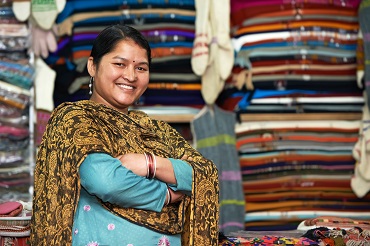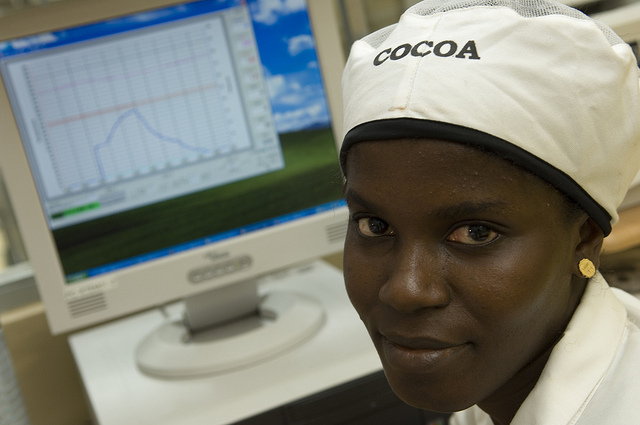Blog
“Shecession” - Women Entrepreneurs and the Pandemic
Mar 30, 2021

This blog is the summary of a virtual roundtable: Measuring the Impact of COVID-19 on Women Entrepreneurs
The impact of COVID-19 within different industries and countries is overwhelming, but one group was affected across the world – women-owned small businesses. Financial institutions need data, methods, and tools to measure the impact of the pandemic on women entrepreneurs in order to build applicable evidence-based mitigation processes. During our recent virtual roundtable hosted by Matthew Gamser, CEO of the SME Finance Forum, attendees heard from Women Entrepreneurs Finance Initiative (We-Fi) executives on how to address financial and non-financial constraints that women-owned SMEs face in developing countries. Speakers from FINCA Impact Finance, a global network for microfinance institutions and community-based banks, from vCita, a fintech helping SMEs manage their businesses, and from IFC also discussed how institutions are measuring the impact of COVID-19 on women entrepreneurs and the tools available to measure impact and support entrepreneurs throughout the pandemic.
This roundtable was moderated by Jessica Schnabel, Global Head of IFC’s Banking on Women business in the Financial Institutions Group. Speakers included Wendy Teleki, Head of the We-Fi Secretariat (housed in the World Bank Group), Zar Wardak, Vice President & Division Director of FINCA Impact Finance, Adi Engel, Chief Marketing Officer of vCita, and Roshin Joseph, Results Measurement Specialist with the Sector Economics and Development Impact Department of IFC.
The roundtable started out with Jessica Schnabel, who spoke about the global economy for women entrepreneurs and pointed out the major challenges that already exist, including the credit gap for women-owned SMEs in emerging markets, which was at $1.5 trillion just before the pandemic. Evidence demonstrates that women entrepreneurs are an important source of growth and value for businesses, investors, financial institutions, and economies. She noted that prior to the pandemic, the World Economic Forum estimated that given pre-pandemic trends, the global gender gap for women wouldn’t be closed for another 100 years.
Next Zar Wardak addressed how some have been using the term “Shecession” to refer to the gendered economic and social impacts of the pandemic. Wardak addressed women and women entrepreneurs who were especially impacted by Covid-19 from FINCA’s vantage point. She noted that 61% of women clients who were surveyed reported cutting essential expenses versus 52% for male clients. As the pandemic hits, clients expressed concerns about their own individual businesses, healthcare for them and for their families, and jobs. In Q4 of 2020 there was a reported 215,000,000 jobs that were lost overall globally and 60% of those jobs were in informal sectors. Today, there are about 740 million women that work in the informal sector and the impact of the pandemic on these informal workers resulted in concerns over their businesses which might not receive government support or benefit from relief programs. Aside from business management, women have had to take on extra responsibilities by caring for their families, and even faced an increased amount of domestic abuse all while being home. Wardak noted that as an organization, FINCA focuses on supporting their female clients by providing employees flexible schedules, flexible leave policies but also, emergency funding and payments if their spouses were out of work.
Next, Adi Engel discussed how women-owned SMEs had to shift quickly to digital business models due to the pandemic. Engel spoke to how vCita helped with this shift and the effects Covid-19 had on their women entrepreneur customers. In terms of digitization, when engaging with customers, the organization has conducted webinars, education initiatives through surveys, and has tracked the usage of the digital app to understand the high proportion of female participation especially in digital technology.
Next, Wendy Teleki addressed how We-Fi mobilizes donor funding for initiatives that finance women entrepreneurs in emerging markets and the kind of challenges We-Fi’s implementing partners faced in collecting and analyzing gender-disaggregated financial data from financial institutions. Teleki noted that there are still significant lags in the way data is collected and the types of data collected. Many financial institutions are not tracking how they are serving women. In order to support their efforts to increase data-tracking of their borrowers or their equity partners, it is important to stimulate data collection when borrowing money to FIs and monitor the use of such funds. Teleki feels that there is progress in terms of supporting women and getting more women financing, which helps close the $1.5 trillion gap. Women-owned SMEs on average have less and newer relationships with financial institutions compared to male-led businesses, therefore having partners challenging financial institutions to get a hold of quality data is necessary. Data that is consistently monitored will certainly help mitigate this issue in the future and result in transparency and accountability regarding financing going to women-owned SMEs.
Roshin Joseph then discussed the main tools IFC uses to measure results with a gender lens. Every IFC project, investment or advisory follows IFC standard results measurement system across key stages of the project. At inception, projects make development impact claims and set objectives and targets that they would be held accountable to. The Anticipated Impact Measurement and Monitoring (or AIMM) tool is used to define, measure, and monitor the development impact of each project. There are mechanisms built into the tool to consider the effects of distress scenarios (such as COVID-19) and to acknowledge projects that make a concerted effort to address underserved segments such as women entrepreneurs. During supervision, projects track and report on these expectations of development impact, which creates information feedback loops and generates an inventory of lessons learned to improve the selection and design of future projects. At closing, project teams complete a self-evaluation against their objectives and a sample of these projects are independently evaluated. IFC investment projects also track information on the number of direct women employees and the number of women in executive management positions. All of this matters because IFC’s strategy firmly places development impact at the heart of what the organization does and measuring results is critical to understanding how well the strategy is working, therefore this is both an accountability and a learning objective and this becomes even more pronounced when trying to tackle pressing issues such as addressing the challenges of women entrepreneurs during the pandemic.
Then the panel discussed the role of digital technology in assessing the impact of the pandemic on women in businesses and in building a more inclusive business environment. Wardak explained how data tracking and digital tool adaptation helps identify organizations that are creating an impact within their communities and designate who gets funding support. Business management apps are playing a particular important role in closing the finance gap with tools that communicate to the greater ecosystem, making a lot of information available. This allows for a greater access to funding, improved research, and a stronger impact from a macro standpoint.
Engel mentioned that data for the institutions that are serving women is crucial to understand what their needs are. Therefore, it is important to find a better way to work with institutions to not only gather the data but to understand how to analyze it so that they can better serve women. Teleki pointed out how tracking the quality of products and services is important for all businesses. She suggested that there should be an annual customer service and brand health study conducted to understand what customers are experiencing, what their needs are, and what their perceptions are of the organization, while also studying the customers’ behaviors and living standards so that organizations are more cognizant of what to develop in terms of products, services, or channels.
Joseph mentioned that IFC’s Banking on Women team recently conducted a survey of MSME entrepreneurs and financial institutions in 13 countries to examine the impact of Covid-19 on women-led MSMEs in Africa, available here: “COVID-19 and Women-Led MSMEs in Sub-Saharan: Examining the Impact, Responses, and Solutions.” The research illustrated that currently only 60% of financial institutions interviewed collect gender disaggregated data, but only 10% use the data to provide differentiated products. This lack of data and usage may explain common misconceptions about women entrepreneurs’ needs and preferences. Furthermore, IFC’s Sector Economics and Financial Institutions Group teams undertook a survey to understand the impact of the COVID-19 pandemic on IFC client financial institutions approximately 6 months after the onset of the crisis. Though the results are considered preliminary and the results reflect both pre-pandemic preferences as well as changes due to the pandemic, the following data point is pertinent: 45% of respondents indicated that lending to Women MSMEs was a decreased/delayed priority or not a priority. This compares with 30% for lending to all MSMEs. Improving these situations is critical to moving forward and seeing a real change for women entrepreneurs.
Lastly, all panelists agreed that it is crucial both internally and externally that platforms, products and services are conducive, and that woman actually utilize them and feel more comfortable with digital agents on a global scale. The challenges that financial institutions face in collecting and analyzing gender-disaggregated data about the impact of the pandemic, the role digital technology plays in that assessment and the ongoing initiatives that help harmonize definitions and methods for measuring that impact need to be monitored closely and supported. They are showing the proper course of action that needs to be followed to see a real change happening.

















